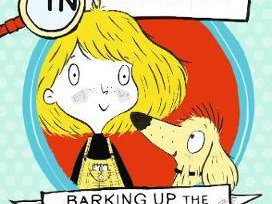
Reading & Libraries
Children's Author Event: Stick and Fetch Investigate with Elissa Elwick - Beeston Library
Join Elissa, award winning illustrator of the Stick & Fetch book series, for a fun, interactive eve…
Our new library catalogue is live!
Log in now
to browse, reserve and renew, or
visit our library service updates
for the latest news and tips.
Overall Book club rating - 4.8/5
Col's Book Rating 5/5
This
is the closest to perfection in a novel I have ever come across and a 500 word
review cannot do justice to this flawless creation; I felt genuinely sorry on
reaching the end. The writing is precise, nuanced, wonderfully evocative;
characterisation is beautiful, exacting, studied. The narrative is cut to the
bone; no padding, nothing is wasted. Dialogue, gestures, even the way people
move, are all meticulously observed and this attention to detail sparks the
characters to life.
The story is told through the eyes of Stevens, an ageing butler, as he looks back on his life during a six day period in July 1956 and Ishiguro admirably captures what I imagine was the essence, the atmosphere and the way of life in stately homes of that time in England.
Stevens’
lifelong ambition is to be a truly great butler, having ‘dignity in keeping
with his position’. He asserts he must never abandon the professional persona
he carries: ‘the great butlers are great by virtue of their ability to inhabit
their professional role… to the utmost; they will not be shaken out by external
events, however surprising, alarming or vexing…’ This obsession with
professionalism explains why he finds it impossible to express his love for the
housekeeper Miss Kenton and why he feels unable to spend time with his dying
father (guests might require him to be available to serve port at any moment).
It also explains why his loyalty towards his master Lord Darlington is
unquestioning and total, despite Darlington being a Nazi sympathiser and, briefly,
an anti-semite.
I
laughed out loud at the superior air I suspect was prevalent at that time, when
Stevens tells us authoritatively that ‘Continentals’ and ‘Celts’ are unable to
be butlers because as a breed they are incapable of the emotional restraint
required “which only the English race is capable of.” Lord Darlington says the
notion of being “arm in arm with Frenchmen” for the sake of the war effort
makes him “yearn for a good bath.”
Angie's Book Rating 4/5
Anthony Hopkins's portrayal of Mr Stevens the Butler was a very good enactment of Mr Stevens the Butler in this book. A man of exacting standards, professionalism, lack of emotion and commitment to his profession who thought his employer's conduct and position in society was second to none, right up to the end of his employer's life when he then realised that maybe his employer wasn't as perfect as he thought. It took a new owner/employer of the house to make Steven's come out of his comfort zone of many years to realise how much of his life he had wasted serving a flawed individual and he'd lost an opportunity of love and marriage to his housekeeper Miss Kenton. However, all is not lost as the book ends on an uplifting, enlightening moment for him after a polite conversation with a complete stranger on a bench on a pier by the sea at the end of his much needed and rare to have holiday. The book is a reminder to us all to value ourselves for who we are and set our own goals in life rather than accept someone else's and that it's never too late to change one's outlook on life.